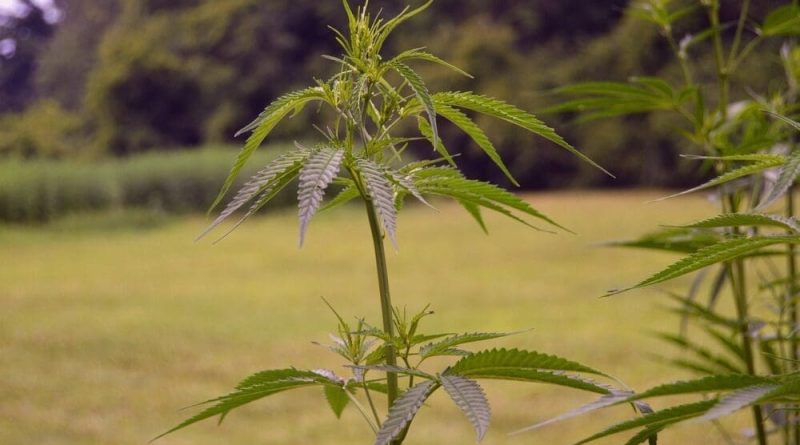Texas Military Veterans Call On Governor To Veto Proposed Hemp THC Ban That Critics Say Would Harm Patients And Consumers
From toxifillers.com with love
Veterans advocates in Texas are calling on Gov. Greg Abbott (R) to veto legislation that would outlaw all hemp-derived cannabinoid products containing any detectable THC, saying loss of access to the products would harm veterans, seniors, medical patients and everyday consumers.
“Banning legal hemp would cause irreversible harm to communities across the state,” the organization Texas Veterans of Foreign Wars said on social media on Wednesday, drawing attention to a petition urging Abbott to reject the measure that was sent to him early this week. “Stand up for your rights and livelihoods.”
The petition itself is from the Texas Hemp Business Council, a trade group representing the state’s roughly $8 billion hemp industry, which critics of the bill say would be decimated if the measure becomes law. Texas’s hemp industry employs 53,000 people, the group said.
“We, the undersigned citizens of Texas, call on Governor Abbott to reject SB 3 and any proposals banning products containing legal hemp,” the petition says. “Hemp is not a threat but a resource that helps countless Texans lead healthier, more fulfilling lives.”
“SB 3 would deprive Texans of natural alternatives for treating chronic pain, anxiety, and sleep disorders throughout the state,” it adds. “A hemp ban also threatens small businesses and farmers in Texas who depend on hemp production for their livelihoods.”
Rather than outlaw products outright, the petition says the legislature should “support additional, thoughtful regulation, such as age restrictions for purchasing, and child- resistant packaging, that ensure product safety without the elimination of these products for Texans.”
As of Thursday afternoon, the petition had more than 90,000 signatures.
Texas lawmakers legalized the sale of consumable hemp in 2019, following enactment of the 2018 federal Farm Bill, which legalized the plant nationwide. That’s led to an explosion of products—including edibles, drinks, vape products and cured flower—sold by an estimated 8,000 retailers.
Last week an spokesperson for the governor declined to detail Abbott’s plan for the bill, saying only that he “will thoughtfully review any legislation sent to his desk.”
Meanwhile in Texas, the state Senate on Tuesday approved a House-passed bill to expand the state’s medical marijuana program.
The measure from Rep. Cody Harris (R) would add additional dispensaries and expand the state’s list of qualifying conditions to include chronic pain, while also allowing medical marijuana for end-of-life patients in palliative or hospice care.
As passed by the House, the currently limited list of conditions would have also been extended to include glaucoma, traumatic brain injury (TBI), spinal neuropathy, Crohn’s disease or other inflammatory bowel disease and degenerative disc disease. But those conditions were removed in the Senate State Affairs Committee.
Members of the Senate State Affairs Committee had also removed chronic pain from the list, drawing criticism from proponents, including Rep. Tom Oliverson (R), who suggested there was an agreement around the issue with Lt. Gov. Dan Patrick (R), the presiding officer of the Senate.
But while Patrick disputed the characterization of their conversation, the lieutenant governor and lawmakers ultimately reached a deal to reinsert the condition into the bill with an amendment that passed on the floor, among others.
Because the House bill was amended in the Senate, it will need to return to the House of Representatives for concurrence before potentially being sent to the governor’s desk.
If ultimately enacted, the bill would build upon Texas’s current, limited medical marijuana program, which allows patients with one of eight qualifying condition access certain non-smokable cannabis products containing no more than 0.5 percent THC by dry weight.
A recent poll found that four in five Texas voters want to see marijuana legalized in some form, and most also want to see regulations around cannabis relaxed.
Meanwhile in Texas, a House committee approved a Senate-passed bill earlier this month that would prohibit cities from putting any citizen initiative on local ballots that would decriminalize marijuana or other controlled substances—as several localities have already done despite lawsuits from the state attorney general.
Under the proposal, state law would be amended to say that local entities “may not place an item on a ballot, including a municipal charter or charter amendment, that would provide that the local entity will not fully enforce” state drug laws.
While several courts have previously upheld local cannabis decriminalization laws, an appellate court comprised of three conservative justices appointed by the governor has recently pushed back against two of those rulings, siding with the state in its legal challenge to the marijuana policy in Austin and San Marcos.
Despite the ongoing litigation and advancement of the House and Senate bills, Texas activists have their targets set on yet another city, Kyle, where they hope put an initiative before voters to enact local marijuana reform at the ballot this coming November.
Separately this month, House lawmakers also passed a measure to support research on the therapeutic potential of ibogaine with the aim of encouraging federal approval of the psychedelic.
That bill, SB 2308, would create a grant program through the state Health and Human Services Commission (HHSC) to provide funding for clinical trials exploring ibogaine as a potential treatment option for people suffering from opioid use disorder (OUD) and other serious mental health condition
Earlier this month, meanwhile, the Texas House also gave final passage to a pair of bills designed to ensure speedy access to psychedelic-assisted therapy in the event of federal approval from Food and Drug Administration (FDA).
States Have Generated Nearly $25 Billion In Marijuana Tax Revenue Since First Markets Opened, New Report Finds


